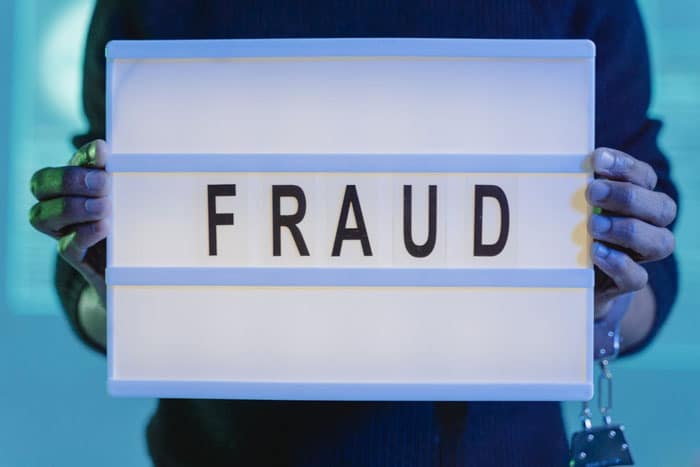15 Fraud Investigator Skills to be best on the Job
To be the best that you can be as a fraud investigator, you need to have certain skills and qualities.
If you are aspiring to get into this career or are already in it and want to improve your performance on the job, this post gives the skills and qualities to develop.
But before looking at these skills, let’s quickly see the kind of duties they perform:
What do fraud investigators do?
Fraud investigators are responsible for examining cases of suspected fraud in order to nab the person who is responsible for the fraud.
Fraud investigators perform various duties, including conducting investigations into allegations of fraud, reviewing and researching documents as evidence, and many more (see detailed fraud investigator job description).
They work for local authorities, performing investigations at offices and individual homes.
15 Fraud Investigator Skills to Help you Succeed on the Job
1. Understand the Business. To be good on the job, fraud investigators are to understand the business side of information technology, and they need to work with software. There are also business rules and processes they need to write, which help in handling different categories of fraud.
2. Understand Information Source. When fraud investigators are looking for evidence, they should know whether the information resides on the server or some other sources of evidence. Knowledge of the inner workings of a company is essential so as to know where to source needed information from.
3. Writing Skills. Reports of the findings of fraud investigators should be articulately, clearly, and accurately put together. The investigator’s report marks the conclusion to any case, as it becomes expedient for the client to get possession of detailed feedback of the assignment.
4. Active Listening. Fraud Investigators should learn to give full attention to what other people are saying, and take time to understand the points being made. If they are to ask questions during an interview, it should be appropriate and not unnecessarily interruptive.
5. Gathering Evidence. This process requires collection of recorded and written statements, as well as audio and video materials. The fraud investigator must complete his/her initial review before gathering evidence, to determine if the customer’s claims are legitimate.
6. Excellent Communication Skills. Fraud investigators should be proficient in English and one or more local language. They should be fluent both in written and spoken communications.
7. Interpretative Skills. Sometimes, large numbers of medical billings or prescription drug requests may be so confusing that only fraud investigators with interpretative skills can perform the task effectively. Most times, they have to be proficient at recognizing and interpreting strange patterns of activity.
8. Practical Knowledge of Fraud Investigation. All areas of fraud investigation should be well understood by those aspiring to go into the career. Fraud investigators should have absolute knowledge of the extent, patterns, and causes of fraud, including fraud prevention, detention, reporting, fraud risk assessment, and management.
9. Knowledge of Relevant Laws. Fraud investigators should understand the laws that are applicable to investigation to avoid violation of State laws. This is because every step of an investigation must be in compliance with the law.
10. Witness Interviews. Fraud investigators might hire some people they can interview to determine the true occurrence of fraud. Some prefer to work with former police officers and private investigators that already have the interrogation and interviewing skills the job entails.
11. Previous Work Experience. Most people who go into fraud investigation job usually have previous experience as an investigator. People who are attracted to this type of job have been found to be officers of the law, or former members of the armed forces. Such people don’t require any formal training, and they know what the job requires.
12. Use Technology. The use of modern technological equipment usually gives the knowledge of how to follow a data trail, review evidence, and conduct forensic analysis. Forensic imaging helps to review clients’ systems and make bit-by-bit copies of them. This helps to view both the live files and the deleted files to understand where the breach actually occurred.
13. Problem Solving Skills. Fraud investigators should be able to identify complex problems, and review related information to develop and explore alternatives, and then implement possible solutions.
14. Integrity. Fraud investigators need to be honest in their dealings with clients’ personal information and confidential matters. They also need to possess a DPA license from the Information Commissioner’s Office to make their work official.
15. Multiple Information Sources and Tasks. There is need for fraud investigators to understand and effectively analyze information from multiple sources. And they also need to prioritize and manage multiple tasks while ensuring that assigned job responsibilities and departmental goals are met.
Fraud Investigator Skills for Resume
If you are writing a resume for a fraud investigator job, you can create an effective core competence or skills section by applying the above skills and qualities if you have them.
It will help to convince recruiters that you will be effective in performing the fraud investigator role in their organizations.
Conclusion:
If you are a fraud investigator who wants to be best in your career, you should work on yourself to develop the above skills and qualities.
An employer needing to hire a good fraud investigator can use the above qualities in screening candidates for the position.
Did you find this post useful in improving your performance as a fraud investigator? Please, leave a comment in the box below. If you have additional skills that have contributed to your success in the career, do also share them with us.





